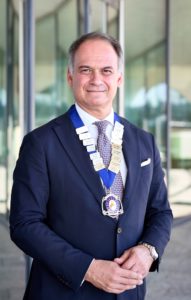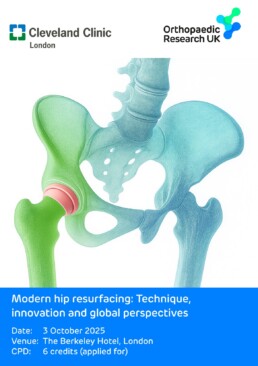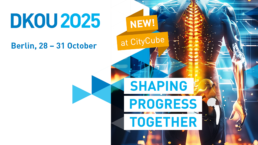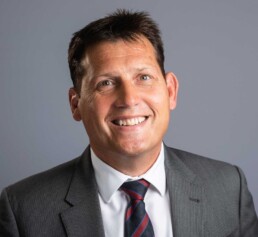Calling for German-speaking candidates for the position of EHS Treasurer
EHS is registered in Austria, therefore a German-speaker is obligatory for this role. To apply, candidates are required to:-
- be supported by their National Hip or Orthopaedic Society in writing
- be supported by two EHS Full Members in writing
- send their CV & hip publications
- send a letter of intention, including their goals for EHS
Applications to EHS Executive Secretary:
samstokesehs@gmail.com
Deadline for receiving candidates: 30th September 2025
 Dear EHS Members,
Dear EHS Members,
We have prepared a rich newsletter for you to enjoy over the summer month of August. First of all, we are very happy to share the magnificent programme of our 16th EHS Congress Thessaloniki 16-17th October 2025 HERE. My personal highlights include the thought-provoking speech to be given by our Honorary Speaker, Prof Hiroshi Fujita, (EHS Member from Japan): No more nuclear wars. Following that, we are incredibly honoured to welcome the living legends of the hip world, Miss Sarah Muirhead-Allwood (UK), Prof Reinhold Ganz (Switzerland) and Prof Emmanouel Dretakis (Greek), the very first EHS President, who have all graciously accepted our EHS Lifetime Achievement Award. And to top off our Opening Ceremony, the Guest Nation of our EHS Congress is USA, represented by The Hip Society, and we will enjoy talks from Prof Donald Garbuz (President) and Dr Mathias P Bostrom (President Elect).
Next, we feature SciCom member Prof Andrew Manktlelow (UK) in our Hip Case Q&A, to offer you the chance to get to know him a bit better, and we share a call for participation in a clinical trial ABOGRAFT – Advancing Infection Prevention in Hip, from our new Full Member, Prof Jorg Schilcher (Sweden). We wish him a warm welcome, along with new Full Members Dr Augusto Dagnino (Italy), Miss Samantha Hook (UK), Dr Kevin Staats (Austria) and Young Member Mr Mohamed Shakshak (UK).
Regards hip courses for the Autumn, please click to our calendar of scientific meetings HERE. October is busy. EHS members Prof Justin Cobb & Mr Panagiotis Gikas will run a day course in London on Modern hip resurfacing (3rd October). Then of course we have our 16th EHS Congress in Thessaloniki (16-17th October 2025)! And two weeks later, I will chair with Prof Carsten Perka the nice EHS session on Current Trends in Hip Arthroplasty @ the German Congress of Orthopaedics & Traumatology “DKOU” in Berlin (10:30am on Thursday 30th October), with the following EHS members:-
- Prof Klaus Siebenrock: Did diagnosis improve and how with modern MRI techniques?
- Prof Rüdiger von Eisenhart-Rothe: AI for planning & execution in osteotomies
- Prof Fares Haddad: New diagnostic tools to prove/exclude PJI?
- Prof Eleftherios Tsiridis: STAR piriformis preserving MIS posterior approach: is the way forward?
- Dr Sebastian Hardt: Short stems – a significant step forward in case of revision?
Meanwhile, all our free EHS Webinars to date are available to everyone for replay HERE. Big thanks to Dr Oliver Marin-Pena (Spain) of the EHS SciCom who organised the three events this year: Hip Preserving Surgery, Primary THA and Revision Hip Arthroplasty. Thanks also to our fantastic speakers: Moritz Tannast (Switzerland); Vikas Khanduja (UK); Marc Tey (Spain); Filippo Randelli (Italy); Thanos Papavasiliou (Greece), Javad Parvizi (USA); Samantha Tross (UK); Fatih Kucukdurmaz (Turkiye); Fares Haddad (UK); Olga Pidgaiska (Ukraine); Mattia Loppini (Italy); George Macheras (Greece); Andrew Manktelow (UK); Nicolas Reina (France); Luigi Zagra (Italy) and Marta del Rio (Spain).
We are counting the days until we welcome you all to Thessaloniki, and should you be worried about any language barrier, please see below for just how many Greek words you may already know. A reminder of the registration link is HERE. Until then, I wish everyone a rejuvenating summer.
Best regards,
Prof Eleftherios Tsiridis
EHS President 2023-2025
 Clinical Trial ABOGRAFT (Antibiotic Impregnated Bone Graft)
Clinical Trial ABOGRAFT (Antibiotic Impregnated Bone Graft)
We are pleased to introduce this prospective, multicenter, international double-blind randomized clinical trial aimed at preventing prosthetic joint infections (PJI) in patients undergoing hip replacement involving bone grafting. The study evaluates whether adding vancomycin and tobramycin to morselized bone grafts reduces infection rates compared to standard saline-treated grafts. As local antibiotic prophylaxis via bone cement has been shown to halve infection rates, ABOGRAFT investigates whether bone grafts can provide similar protective effects in complex hip reconstructions where biological fixation with bone grafting is required.
Importantly, the trial has received approval from the European Medicines Agency (EMA), meaning central regulatory clearance is in place—significantly facilitating participation from centers across EU member states. Each participating site is expected to recruit more than 20 patients annually. The study is currently active at seven Swedish centers and expanding internationally.
An announcement regarding a Principal Investigator (PI) meeting during the upcoming EHS Congress in Thessaloniki will follow shortly. We warmly welcome interest from colleagues across Europe who are engaged in complex hip arthroplasty and share our goal of advancing infection prevention through evidence-based innovation.
Hip Case Q&A Prof Andrew Manktelow (UK)
My practice is solely hip replacement related so I see many patients with hip arthritis, but over a very wide age range, with a variety of hip concerns and with a number of possible solutions and options. That’s the fun of hip surgery!!! Unfortunately, I also get referred a number of patients with failed, or unhappy hip replacements. That’s where experience and an understanding of the complexity of revision surgery is important.
Probably the most interesting cases are those that require customised implants. Planning with the engineers to reconstruct or bypass areas of bone loss in revision or looking to optimise hip biomechanics in complex primary surgery, is a challenge. The process when planned and delivered carefully, makes for successful outcomes and happy patients. I suspect these are some of the more difficult cases, but also the most rewarding!!
I read journals and travel to meetings looking to keep up with all the important research work around my practice. I wouldn’t pick out one piece of excellent work over many others. With regard to our own work, I am particularly proud of the work we have done with our EMSON network. I hope our Bone & Joint Journal paper (HERE) showing improved outcomes in revision surgery in our region, after we introduced the Network process has been a helpful message.
Away from the OR, I like spending time with my wife and four daughters. I enjoy walking, watching all sport and am passionate about my garden. We grow a lot of the food we eat which is fun.
This year we have travelled to explore Oman and have spent a week relaxing by the coast in Turkey. Travelling and spending evenings with friends and family on holiday, makes all the hard work we do worthwhile!!
 It’s all Greek to me
It’s all Greek to me
It has been claimed that as many as 150,000 words in Modern English have their roots in the Ancient Greek. By some calculations, that’s 30% of the English language! 5% of these words are directly borrowed from Greek, while another 25% are borrowed indirectly, mainly through Latin. French, Italian, Spanish and German also feature many Greek words.
Greek remains a language which greatly enriches international scientific discourse; more than any other, it is the language which developed, shaped and expressed the beginning of most scientific theories, philosophical thoughts, and literature in most of the modern-day languages of the Western world.
Mr Zolotas (director of the Bank of Greece ) showed this off very nicely when he gave a speech in 1959 to an International banking audience in English using almost all Greek words, to emphasize the wealth of the Greek language and the fact that countless Greek words enrich English.
Mr Zolotas’ English-Greek speech
“It is Zeus’ anathema on our epoch and the heresy of our economic method and policies that we should agonize the Skylla of nomismatic plethora and the Charybdis of economic anaemia.
It is not my idiosyncrasy to be ironic or sarcastic but my diagnosis would be that politicians are rather cryptoplethorists. Although they emphatically stigmatize numismatic plethora, they energize it through their tactics and practices. Our policies should be based more on economic and less on political criteria. Our gnomon has to be a metron between economic strategic and philanthropic scopes.
In an epoch characterized by monopolies, oligopolies, monopolistic antagonism and polymorphous inelasticities, our policies have to be more orthological, but this should not be metamorphosed into plethorophobia, which is endemic among academic economists.
Numismatic symmetry should not antagonize economic acme. A greater harmonization between the practices of the economic and numismatic archons is basic.
Parallel to this we have to synchronize and harmonize more and more our economic and numismatic policies panethnically. These scopes are more practicable now, when the prognostics of the political end economic barometer are halcyonic.
The history of our didimus organization on this sphere has been didactic and their gnostic practices will always be a tonic to the polyonymous and idiomorphous ethnical economies. The genesis of the programmed organization will dynamize these policies.
Therefore, I sympathize, although not without criticism one or two themes with the apostles and the hierarchy of our organs in their zeal to program orthodox economic and numismatic policies.
I apologize for having tyranized you with my Hellenic phraseology. In my epilogue I emphasize my eulogy to the philoxenous aytochtons of this cosmopolitan metropolis and my encomium to you Kyrie, the stenographers.”
(Mr Zolotas died in 2004 at the age of 100.)
Taken from: www.greekreporter.com & image above shows King Philip II of Macedonia, Alexander the Great’s Dad

Full / International Membership 150 €


















